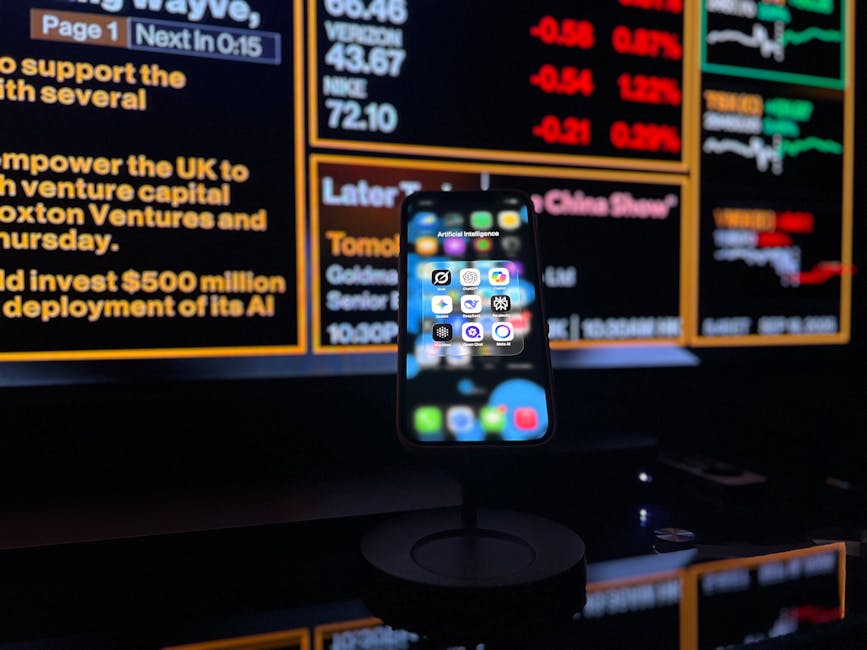No products in the cart.
How AI is Transforming Gig Work Across the Globe
AI is revolutionizing the gig economy, matching freelancers with jobs like never before. Explore the implications for future careers.
San Francisco, USA — The gig economy is evolving at breakneck speed. This transformation is powered by artificial intelligence, a force that is reshaping the landscape of freelance work. Picture a bustling café where graphic designers, writers, and digital marketers gather, their laptops open and their minds racing. In this modern-day agora, freelancers are not just vying for attention; they are being matched with the right opportunities through sophisticated algorithms that analyze skills, preferences, and market demand.
As the gig economy swells, driven by a generation that values flexibility and autonomy, AI has emerged as a pivotal player. Platforms like Upwork and Fiverr are leveraging advanced algorithms to connect freelancers with potential clients. But what does this mean for the future of work? Are we witnessing the dawn of a new era where technology and talent converge seamlessly?

The roots of this transformation can be traced back to the early days of online freelancing, when platforms primarily served as simple job boards. Today, they have evolved into complex ecosystems, powered by machine learning and data analytics. AI systems can now evaluate a freelancer’s portfolio, past performance, and even client feedback to recommend jobs that align perfectly with their skill set.
Consider the story of Maria, a graphic designer based in Barcelona. She has spent years honing her craft, but finding clients was a daunting task. Enter an AI-driven platform that not only matches her with projects tailored to her expertise but also predicts her earning potential based on market trends. With just a few clicks, Maria is able to apply for jobs that resonate with her style and experience, dramatically increasing her chances of securing work.
Today, they have evolved into complex ecosystems, powered by machine learning and data analytics.
However, the rise of AI in gig work is not without its challenges. Critics argue that reliance on algorithms can lead to a lack of personal connection in the hiring process. Freelancers like Tom, a freelance writer in Toronto, express concerns about the over-reliance on technology. “Sometimes, it feels like I’m just another data point,” he says. “Human creativity is nuanced; it can’t always be quantified by algorithms.”
This sentiment echoes among many freelancers who fear that, as AI continues to advance, the human element of work may be overshadowed. The balance between technology and personal interaction is delicate. While AI can streamline the hiring process, it is essential that platforms also prioritize the human touch—something that can foster genuine connections and trust.
Moreover, the gig economy is not just about freelancers finding work; it’s also about clients seeking the right talent. Businesses are increasingly turning to AI to ensure they hire the best candidates. A report from the Harvard Business Review highlights that 72% of companies believe AI will improve their hiring processes, helping to eliminate biases and enhance the quality of candidates they attract [1].
But how does this affect the freelancers themselves? As AI systems become more adept at predicting job fits, freelancers must focus on differentiating their personal brands. Staying relevant in an AI-driven market requires continuous skill development and adaptability. As the landscape shifts, freelancers need to embrace lifelong learning, staying updated with emerging trends and technologies.
Looking ahead, the implications of AI in gig work are profound. The future of freelancing is likely to be a blend of human intuition and technological efficiency. As platforms refine their algorithms, we can expect an even more personalized job-matching experience. Freelancers may find themselves empowered by tools that not only facilitate work but also enhance their overall career trajectories.
Staying relevant in an AI-driven market requires continuous skill development and adaptability.
In this evolving landscape, the key lies in collaboration between freelancers and technology. Embracing AI can unlock new opportunities, but it’s crucial that individuals retain agency over their careers. By marrying creativity with data-driven insights, the gig economy can flourish in ways previously unimaginable. The question remains: will freelancers adapt to this new reality, or will they resist the change? The answer may very well shape the future of work itself.











